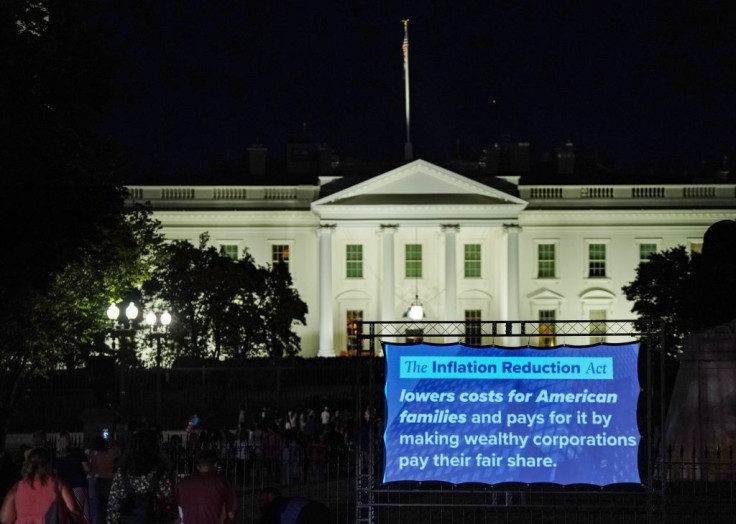
Congress passed the Inflation Reduction Act (IRA) Friday, Aug. 13, that will allow households to gain incentives, such as tax rebates, as they improve their energy efficiency.
Under the measure, homes that incorporate rooftop solar panels, invest in energy-efficient appliances, or use electric vehicles, among other changes to a sustainable lifestyle, may qualify for tax breaks or enhanced tax credits.
According to CNBC, the overall effect of the legislation, which is still awaiting the signature of Pres. Joe Biden could have households save about $170 to $220 per year on their electricity bills. Many of the incentives will take effect in 2024 and carry over until 2032.
The IRA is part of Biden's Build Back Better policy. The package comes with an estimated $369 billion in spending on programs and subsidies that may also impact Medicare benefits, especially among elderly and vulnerable family members.
Tax incentives to avail under the Inflation Reduction Act
Families who have plans of buying green vehicles, hybrids and hydrogen fuel cell cars may get a maximum of $7,500 in tax credits if their gross income is below $150,000 for single filers or $300,000 for joint filers. Their tax credits will also be based on the cost of the car, which should not exceed more than $80,000 for vans, pickup trucks or sports utility vehicles.
A tax credit of up to $4,000 may also be availed for families buying used or second-hand electric vehicles if their gross income does not exceed $75,000 for single filers and $150,000 for joint filers. The car's sale price must not be beyond $25,000.
Homes installing solar panels or wind energy, as well as other energy-efficient home projects, may get a 30 percent tax break. According to Grid, the current law provides a 26 percent tax credit for installations done between 2020 to 2022. The IRA not only increases the tax break but also extends the provisions for the next 10 years.
So, if a household spends $15,000 to $25,000 on solar panel installation, their tax credit may be anywhere from $4,500 to $7,500. Rebates of up to $14,000 may also be claimed for purchases of energy-efficient appliances like electric stones, heating and cooling systems, insulation or ventilation improvements, and upgrades to the circuit breaker and wiring.
How the IRA may change Medicare and healthcare cost
Once this legislation has been signed into law, the federal government will begin negotiations to lower the cost of at least 10 Medicare drugs beginning in 2026 and 20 medicines by 2029. Senior Medicare beneficiaries will have a yearly $2,000 cap on out-of-pocket expenses for prescription medications beginning in 2025. All vaccines could also be given for free with no out-of-pocket spending for the beneficiary.
According to Professor Rachel Sachs, an expert on health laws and food or drug regulations, these provisions will protect the seniors who are currently prevented from filling out prescriptions due to the out-of-pocket costs, per FactCheck.Org. Essentially, what this means is that people who need treatments the most will soon be able to afford their medications.
Meanwhile, several analysts said that the changes in the IRA will not have a direct increase on individual taxpayers. Instead, the burden will fall on corporations. However, if these companies will become less profitable, then their operations, including the wages of their workers, may also change in the coming years.
Related Article: Inflation Relief Checks Up to $1,700 to Be Released in 18 States; Who Are Eligible?